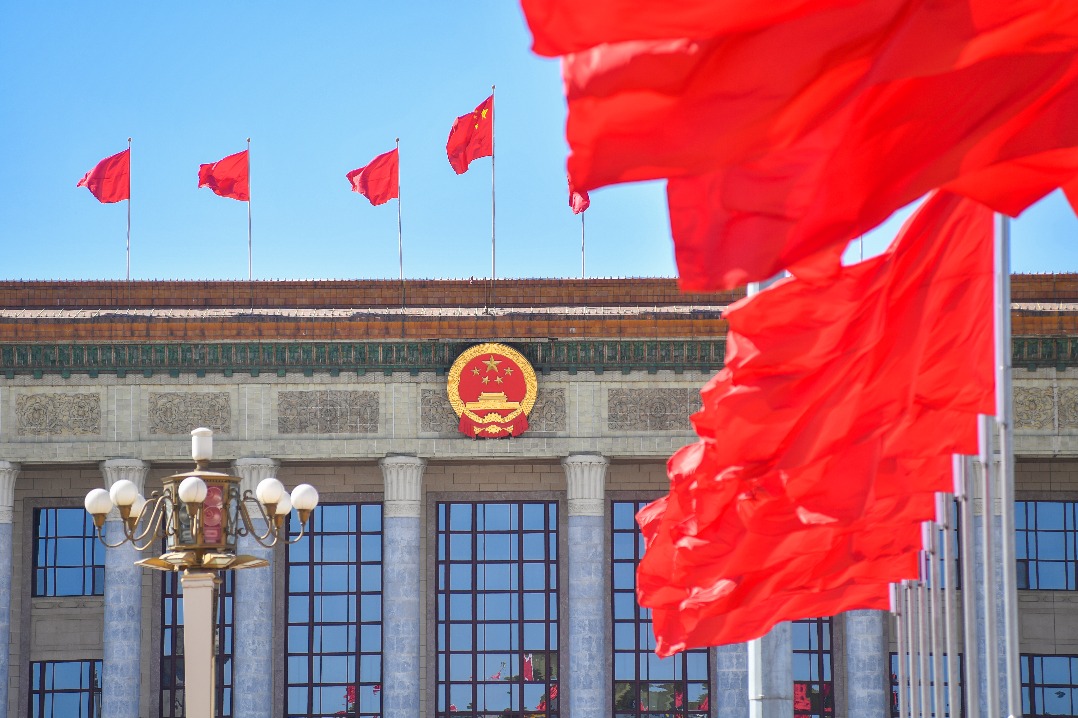GECs driving growth in clean power use

China's burgeoning Green Electricity Certificate system is rapidly gaining recognition worldwide and driving significant domestic growth in clean energy consumption, positioning the nation as a pivotal force in the global low-carbon transition, a senior energy official said.
GECs are playing an indispensable role in promoting industrial upgrading, attracting green investment, and enhancing China's influence in global climate governance, said Yi Yuechun, deputy head of the China Renewable Energy Engineering Institute.
"At the legal level, China's determination to develop green and low-carbon energy is deeply embedded in national regulations, as the country's Energy Law explicitly makes promoting green energy consumption a core priority," he said.
"Systems like GECs not only provide a solid legal basis, ensuring that green energy consumption is regulated and verifiable, but also effectively guide market demand and accelerate our country's green transformation of the energy structure."
China launched its GEC system in 2017. It has since evolved into a comprehensive framework supported by law, policy, robust institutions and clear standards.
The National Energy Administration has been pushing for wider use of the certificates to boost green power consumption, following the unconditional recognition given to the GEC system earlier this year by RE100, a global campaign involving more than 400 member businesses that have committed to eventually using 100 percent renewable electricity in their operations.
China has become a crucial driver and contributor to the global low-carbon transition in recent years. Data released by the institute reveal that China's renewable energy installed capacity had surpassed 1.8 billion kilowatts by the end of last year, accounting for approximately 41 percent of the global total.
Yi said the GEC system has evolved from an initial policy instrument into an increasingly mature and vibrant market-based mechanism.
"It has not only effectively addressed the issue of renewable energy curtailment, but, more crucially, by assigning clear value attributes and traceability to green electricity, significantly incentivized enterprises and local governments to actively procure and utilize clean energy," he said.
"This market-driven force is accelerating the profound transformation of our energy structure and providing a key Chinese solution for companies to achieve their ESG goals and green their global supply chains."
RE100's unconditional acceptance of GECs is a "landmark achievement", said Wan Jinsong, deputy head of the National Energy Administration. The significant development is a clear indicator of the system's enhanced international standing and growing recognition, Wan said.
The move instills greater confidence in companies that utilize the GEC system, empowering them to make credible claims about their use of green power, he said.
The GEC market has been booming recently.
From January to August, a staggering 464 million GECs were traded nationwide, a 1.2-fold increase year-on-year, with stand-alone GEC transactions accounting for about 70 percent.
In August, the average GEC price reached 5.66 yuan ($0.8) per certificate, up 22.77 percent month-on-month.
Major economic provinces and cities, including Guangdong, Zhejiang, Jiangsu and Shanghai, are leading buyers, driven by energy consumption intensity controls and renewable energy consumption responsibility targets.
Over 80 percent of GEC buyers came from the manufacturing and energy sectors, with corporations making up more than 90 percent of purchasers.
Yi noted that China's GEC system is also serving as a model for other Asian nations, such as Malaysia, as they develop their own green certificate frameworks.
Furthermore, international cooperation in GECs has become a key topic in multilateral and bilateral dialogues, particularly concerning its role under carbon border adjustment mechanisms.
"GECs, through market-based transactions, reflect the environmental value of green electricity, enhance returns on green investment, and accelerate the energy structure's shift toward clean and low-carbon sources," Yi said.
"They also provide a pathway for green consumption, fostering a societal atmosphere where everyone participates in green initiatives and promoting green economic and social development."
China aims for deeper alignment of its GEC framework with global rules, facilitating greater international cooperation and contributing significantly to global decarbonization efforts, he said.
Today's Top News
- Beijing hopes COP30 will address concerns of developing nations
- China, US seek to stabilize trade relations
- Li: CIIE a key bridge linking China, world
- Pacts epitome of South-South cooperation
- Dutch govt should act responsibly to resolve trouble of its own making: China Daily editorial
- Shenzhou XX crew's return trip delayed due to space debris risk






























